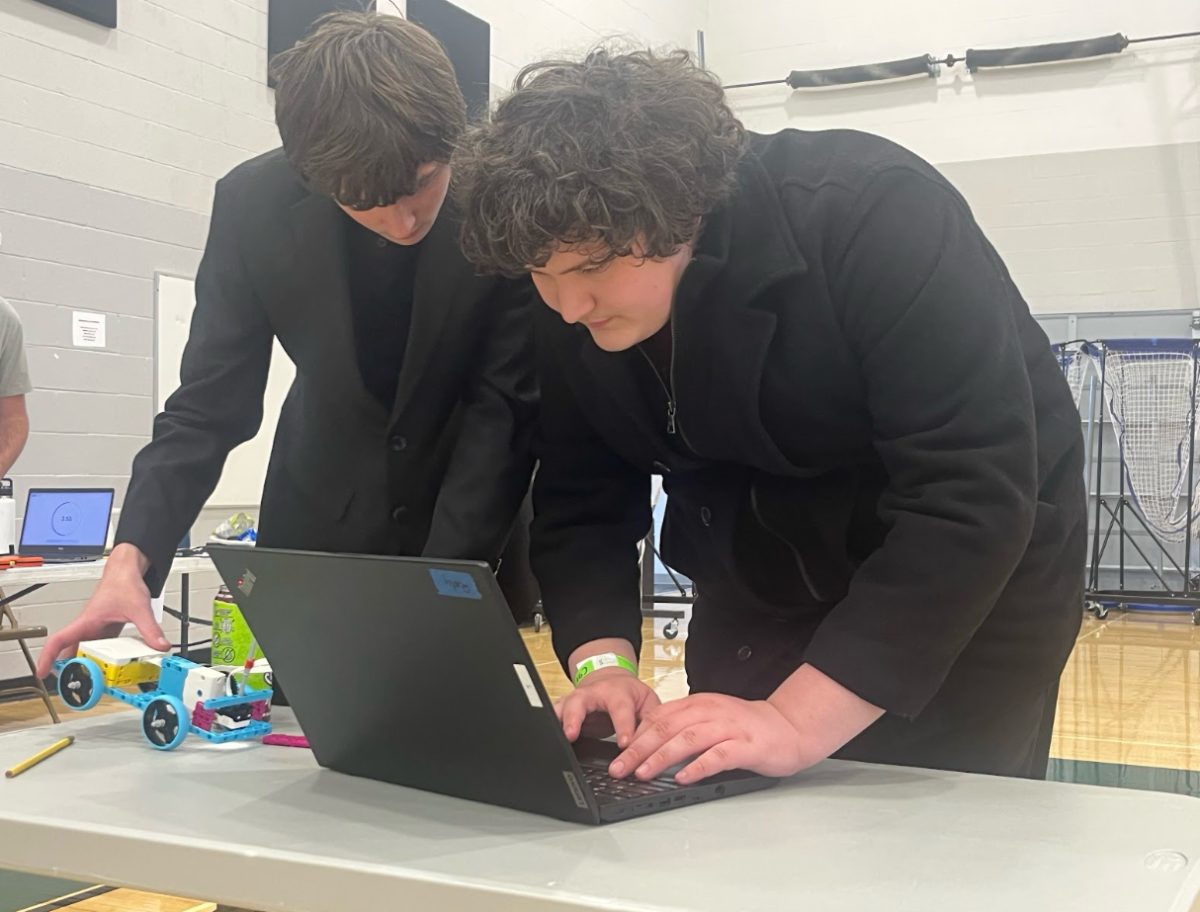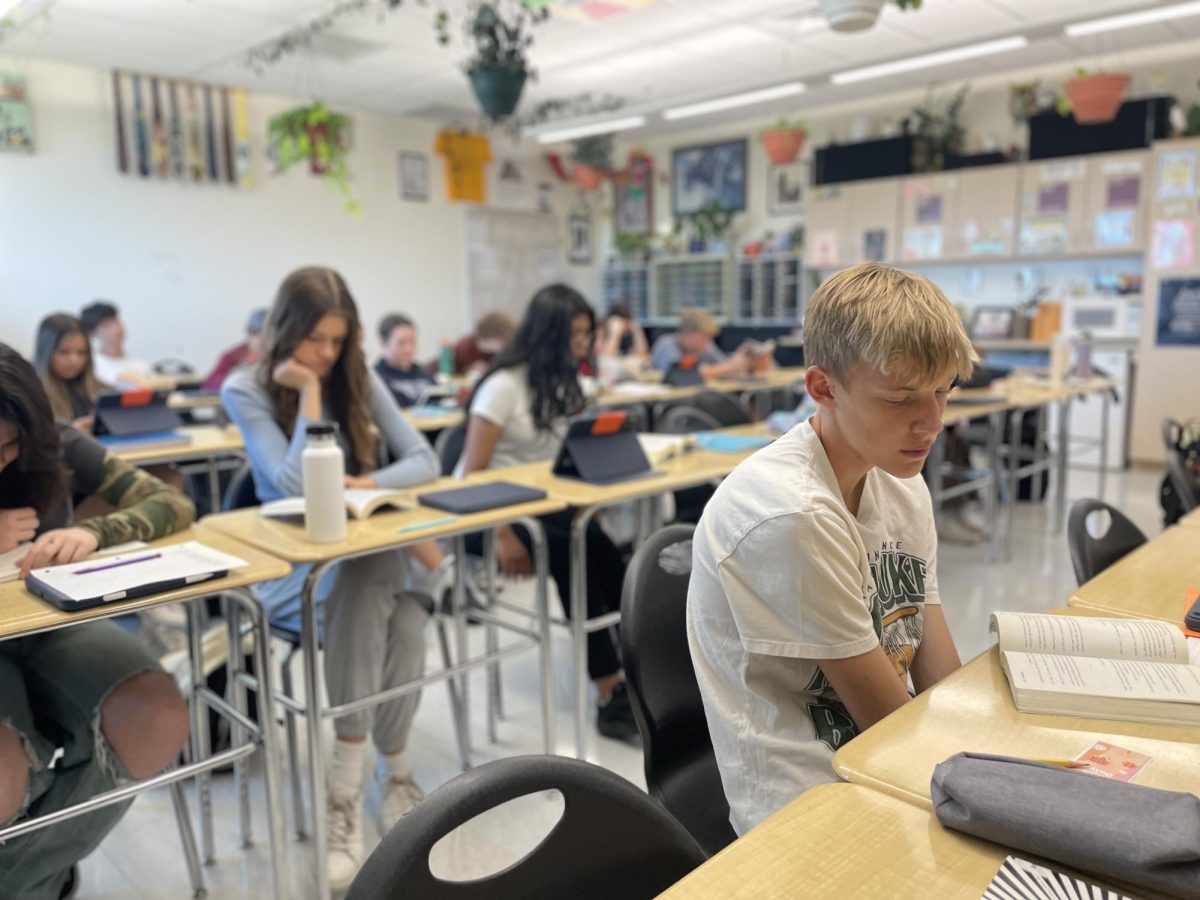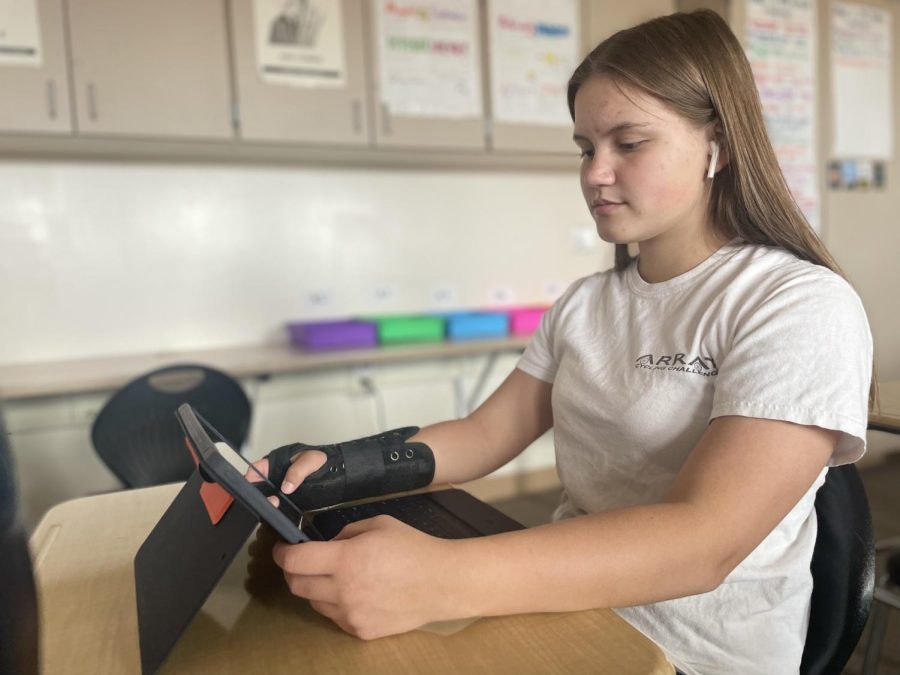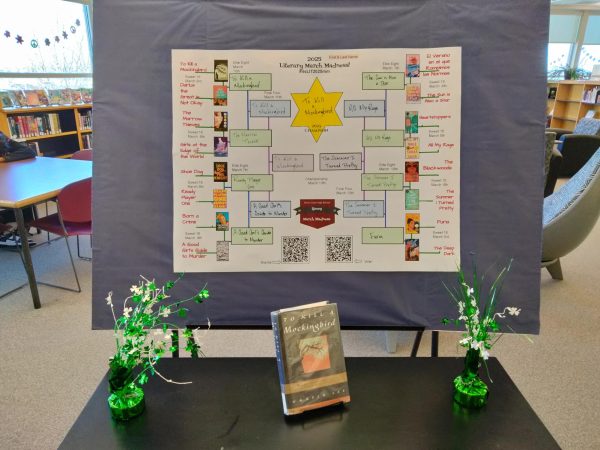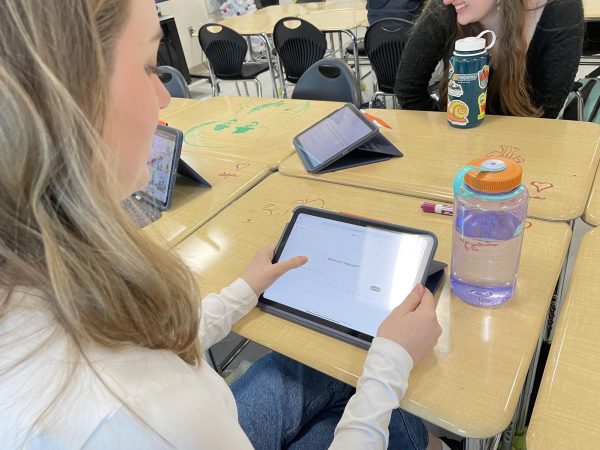How Music Effects Student Productivity
Photo Courtesy of Catherine Ruiz
A student, Hayley Otten, works on an article while listening to music.
From the day students enter kindergarten to the time they graduate, they will have to go through a series of tests gauging their ability to move on to the next grade level.
On average, a student can feel a significant amount of pressure. According to a BC study, 1 in 5, age 4-19, start to show signs of mental health problems. That usually starts to come about due to school. There are certain things that can be counteractive to putting up with this pressure. This would include things like exercise, hobbies, and eating better. All of which cannot be done as easily as just opening an app to increase productivity (in some cases).
As school comes to an end, the workload being sprung on students has significantly increased from the beginning of the semester. Teachers cramming new information and finals coming up, the toll on students’ mental health has significantly been impacted. However, through music, students have found a way to manage stress and be more productive.
When looking at the science behind listening to music, research has shown 68% of those who were exposed to music at an early age, found it easier to learn new material, opposed to the 50% who were not as frequently exposed. Looking at The American Association of Retired Persons (AARP) survey shows those who listened to music when they were younger, were more susceptible to the multitude of benefits it offers. These benefits include better mood, sleep, memory, and lower levels of anxiety. All of which help keep up mental health and well-being overall.
After a talk with an avid music listener Luke Sarris, a student at Silver Creek High School, he explained,“[music] helps me focus, when I’m not listening to music it’s easy to zone out and not focus. It keeps me entertained when I’m doing something boring.”
Sarris has found that their brain works better with music in the background. The ability to focus varies from person to person. Some people may use certain things that others may not to help them focus.
The school week often leaves students with a repetitive schedule: waking up, going to school, coming home, and doing homework. This constant cycle can leave students feeling drained, regardless of what time of the day it is. There is no definite sweet spot when it comes to focusing, but there are resources to help students finish the task at hand. Showcasing how music affects students’ focus.
Having talked to Julio Cearsar Barraza Rocha, a student at Silver Creek he explains, “At this point it’s just like background music, I don’t actually listen to it, it just kinda helps me focus my thoughts.”
From Rocha’s perspective they find that often they do not listen to the song itself, rather, they find it as a way to “focus their thoughts.” In some cases people find it difficult to work with music due to it being a distraction. So it’s important to make sure students have control by only using personal headphones. After going into how music affects students’ productivity, readers are also able to understand how some may find it distracting.
“A lot of [students] listen to music at home when you’re doing your studies, and so I think bringing a little bit of that natural habit, rather than fighting it makes more sense.” Matthew Opal, SilverCreek English teacher explained, “I do find that students do stay focused a little better on writing tasks if they have music.”
A teacher at Silver Creek has seen the difference it can make, when it comes to focusing on an assignment. Instead of shying away from this resource, Opal has honored the students wishes, by allowing them to bring in a habit from home that they otherwise would use as a resource. During both in and after school, the average student spends 6-8 hours listening to music. Proving music to be a healthy way students relieve stress, while staying focused through convenient apps. The most popular being Apple Music and Spotify.
Nonetheless, It’s important to note everyone is different when it comes to learning. While some students might find it easier to focus with background noise, others may not. That’s why it would be mindful to have students wear headphones, if they so choose to listen to music as they work. However, for those who are able to work with background noise. The benefits of working with music outweigh the cons that have been previously listed above.


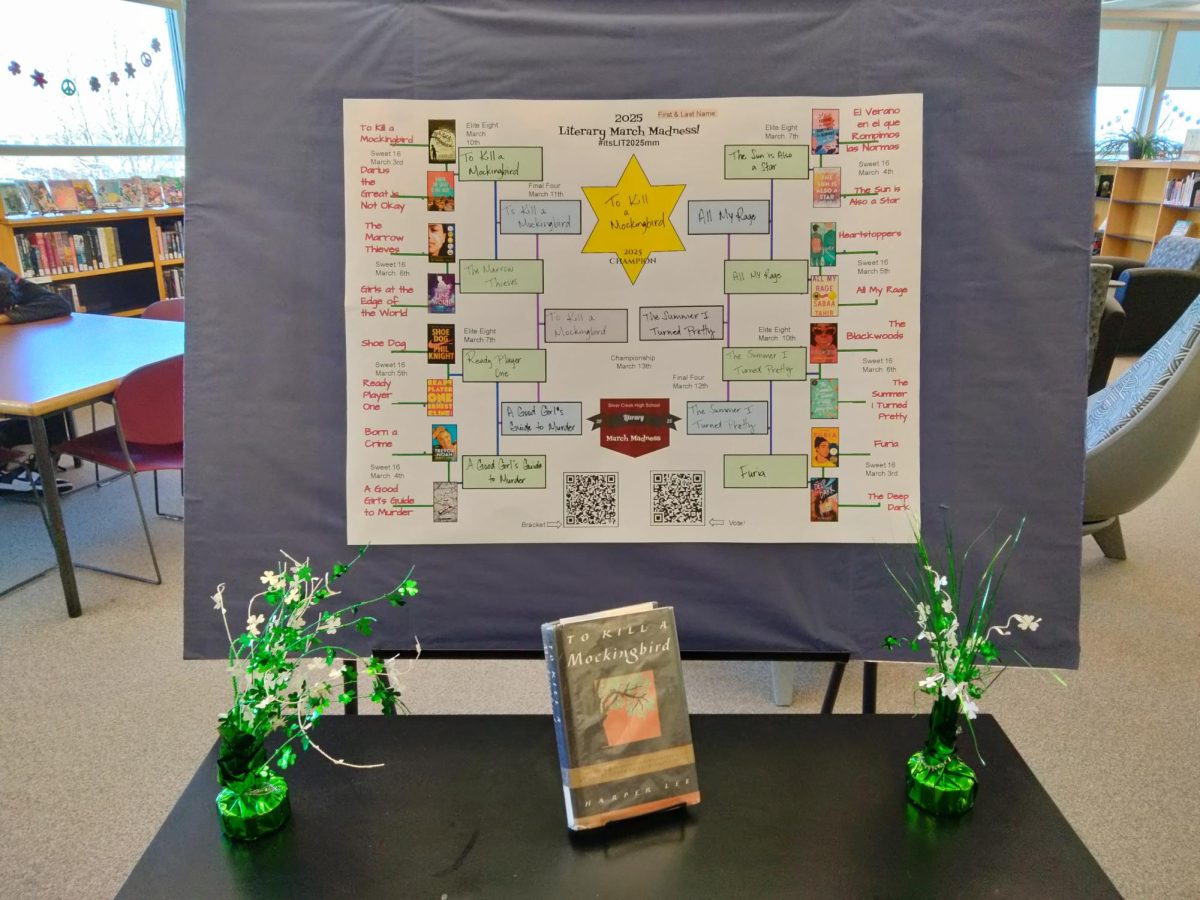

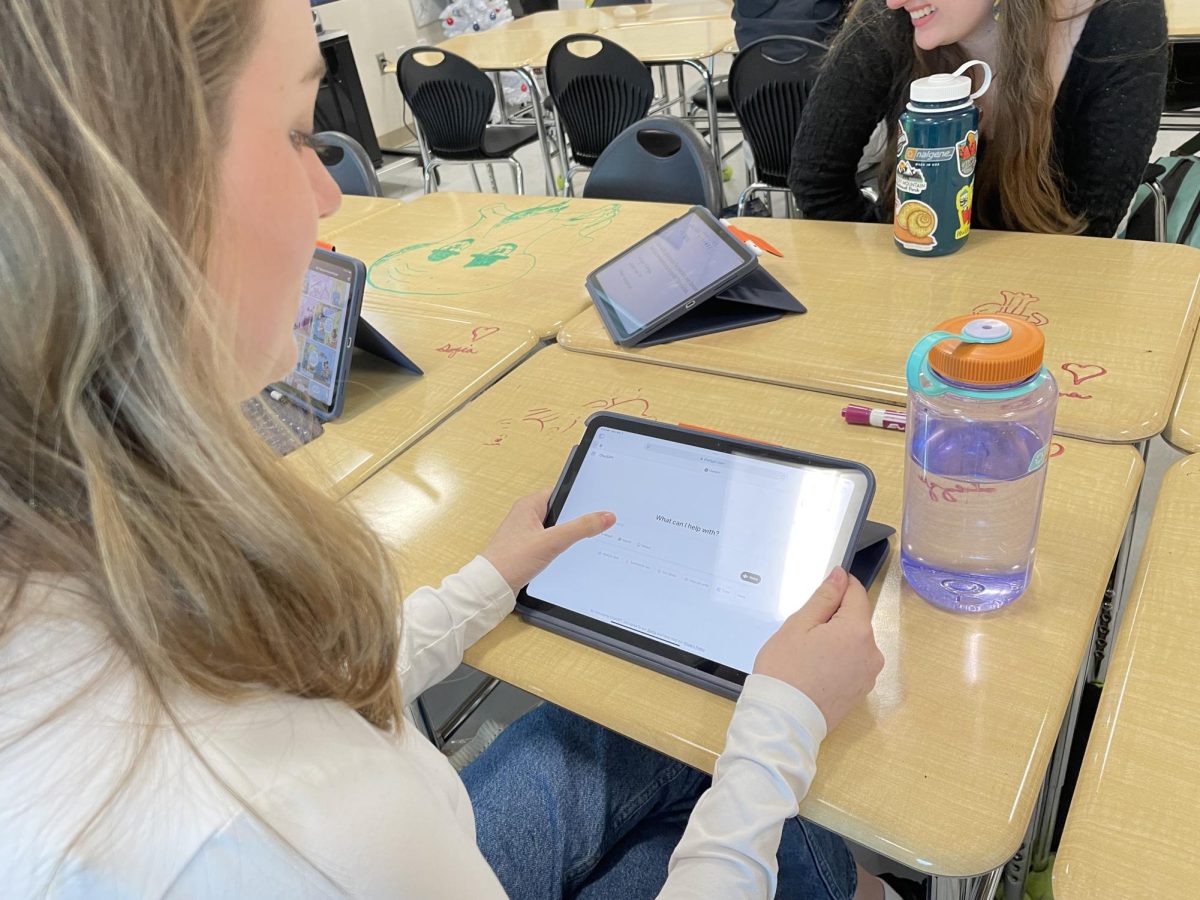

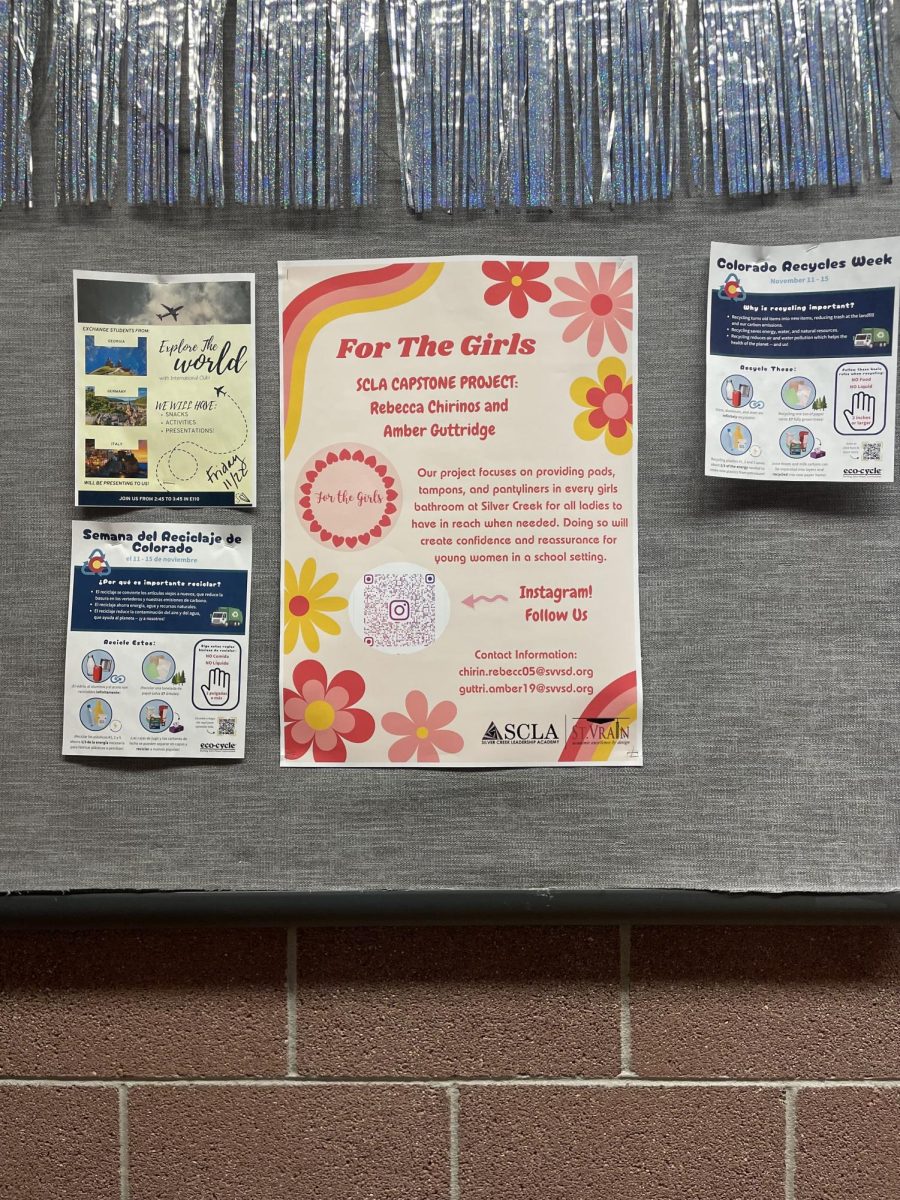










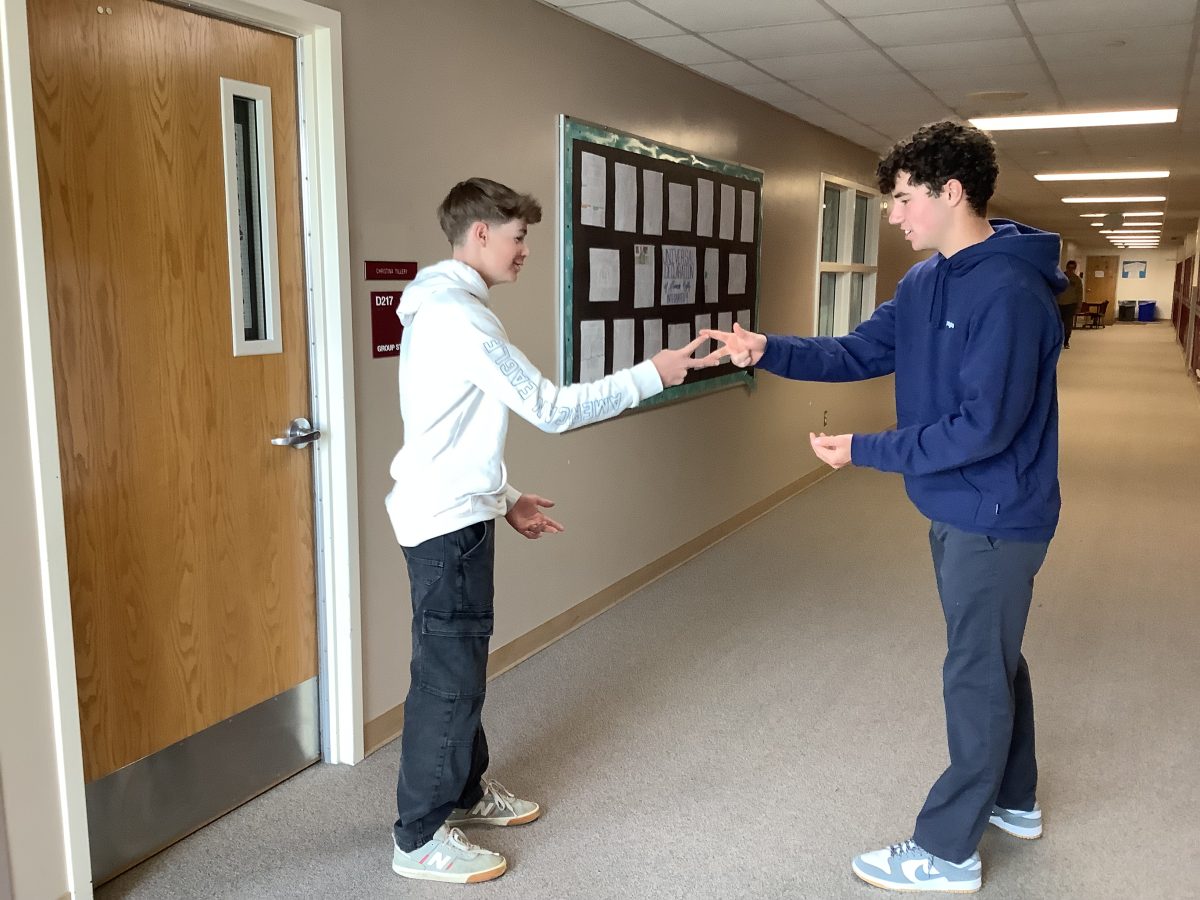

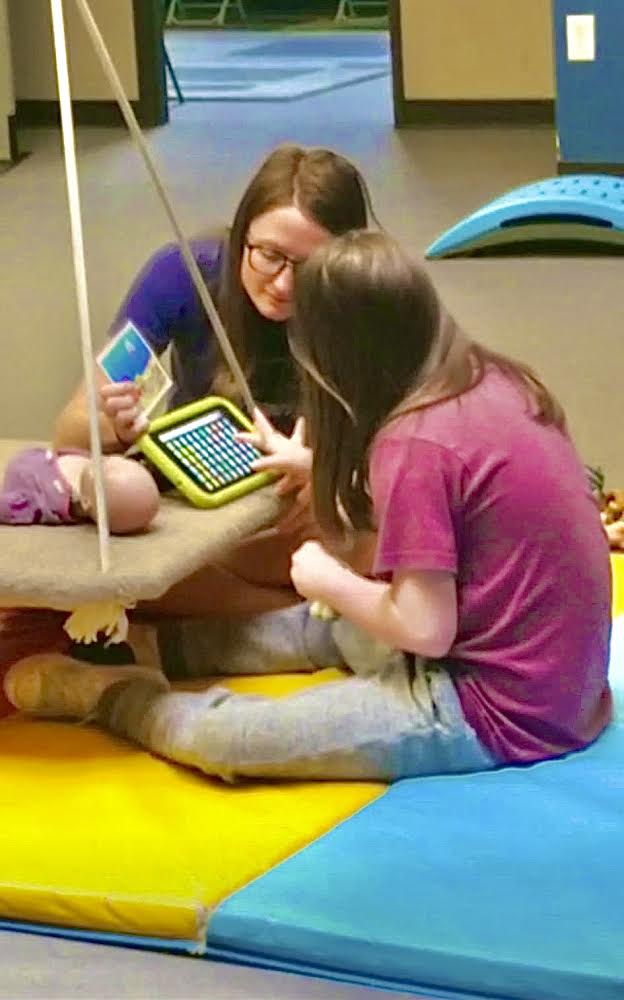











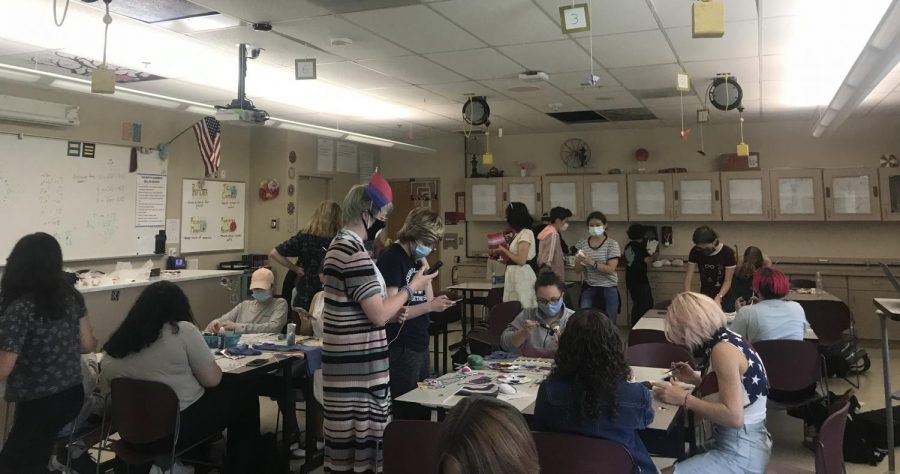

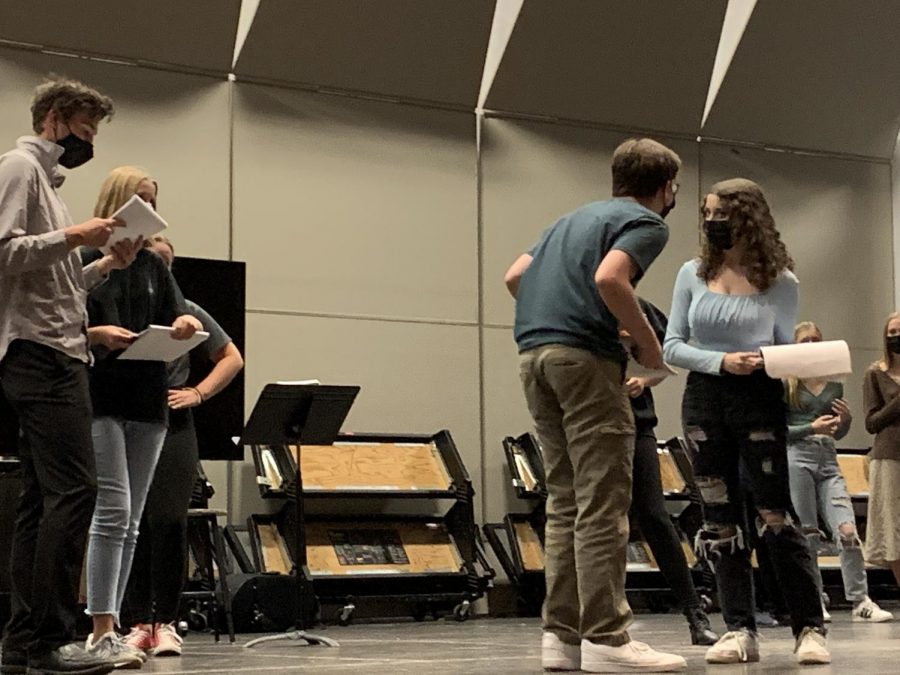




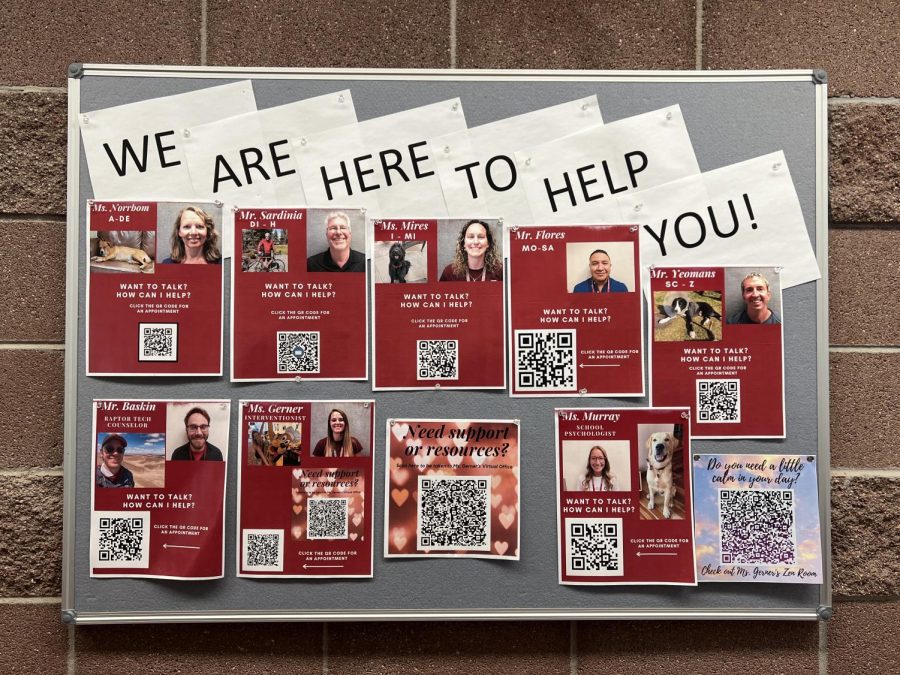


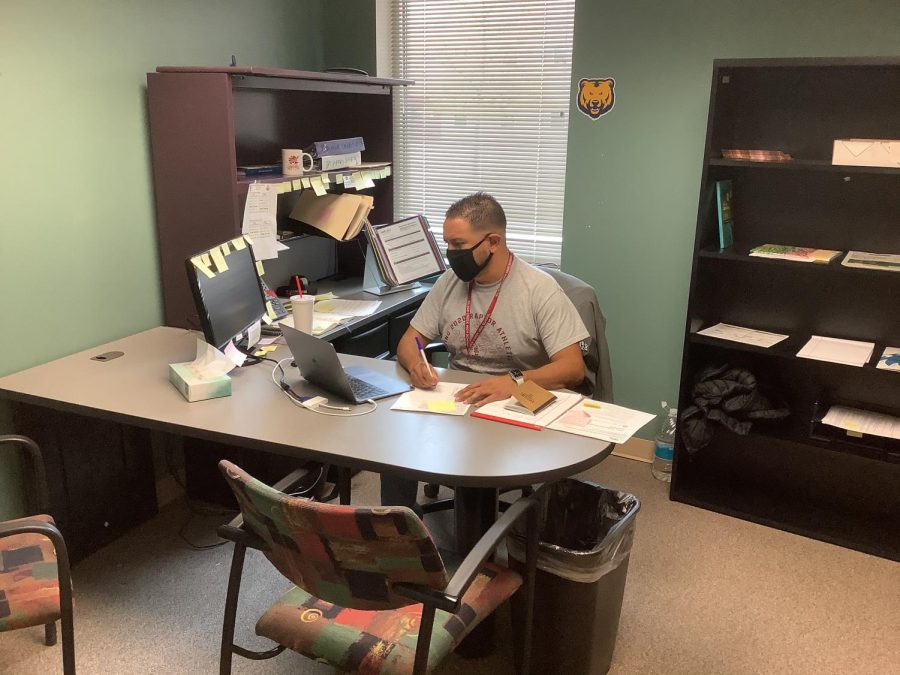
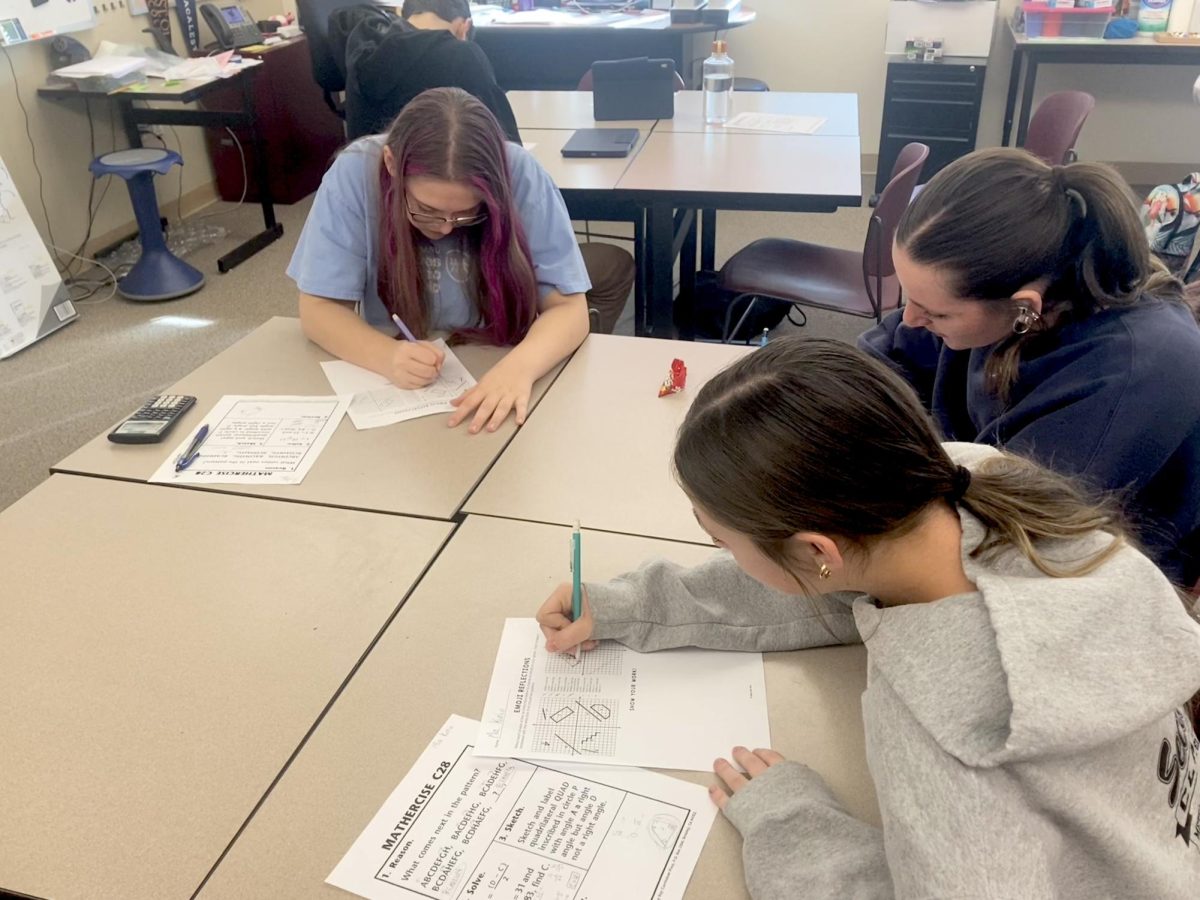
![Hosting the SCLA Casptone Mentor Dinner outside allowed for more attendees on September 27, 2021 at Silver Creek. This event would’ve usually been held inside. According to Lauren Kohn, a SCLA 12 teacher, “If we have a higher number of people, as long as we can host the event outside, then that seems to be keeping every[one] safe”.](https://schsnews.org/wp-content/uploads/2021/11/sxMAIGbSYGodZkqmrvTi5YWcJ1ssWA08ApkeMLpp-900x675.jpeg)


